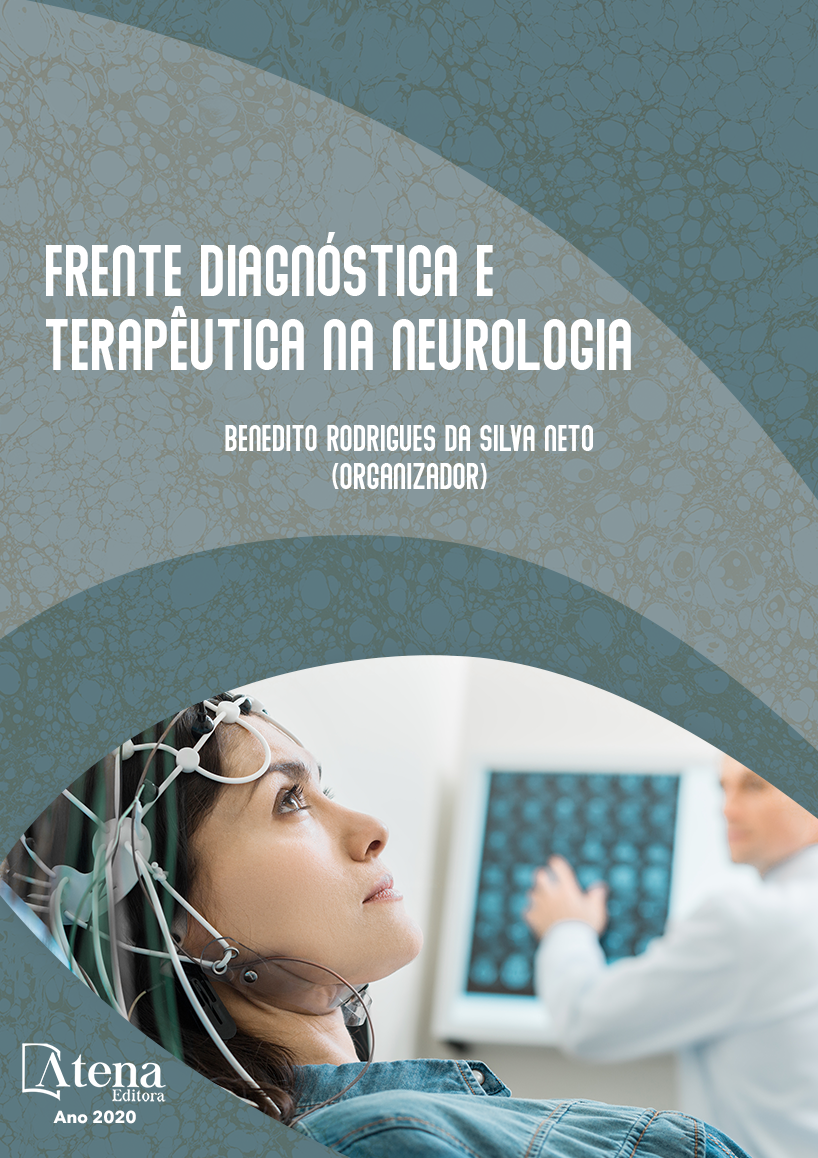
SINDROME DA ENCEFALOPATIA REVERSIVEL POSTERIOR (PRES) ASSOCIADA Á ECLÂMPSIA E SINDROME HELLP NO PÓS PARTO IMEDIATO: RELATO DE CASO.
Objective: Report a case of
Posterior Reversible Encephalopathy Syndrome
(PRES) associated with eclampsia and HELLP
Syndrome during immediate postpartum.
Method: The information was obtained by a
thorough review of the patient’s medical record
and the literature available concerning various
aspects of PRES. Case: Female, 26 years
old, white, G4P4A0, with a history of untreated
eclampsia and diagnosis of HELLP Syndrome.
Following an inadequate prenatal care, which
lead to a home birth two days ago, the patient
presented seizures associated with intense
headache, vomiting and elevation of blood
pressure (BP) after 48 hours postpartum. She
was then stabilized at a regional hospital with
limited resources, through the use of diazepam,
phenytoin and magnesium sulfate and was
transported to a tertiary referral hospital. She
stayed at the emergency service observation
for two days and was later transferred to the
Gynecology and Obstetrics ward where she
remained for four days in clinical follow-up and was released without further impairments.
Conclusions: PRES is a reversible syndrome when properly and quickly treated.
Management is based on the underlying pathology and adequate maintenance of blood
pressure and may require the use of antidepressants and antiepileptics associated with
steroid administration to reduce cerebral edema. Early diagnosis is necessary to avoid
possible coma. In short, it is necessary to diagnose this pathology and understand the
treatment to avoid neurological damage.
SINDROME DA ENCEFALOPATIA REVERSIVEL POSTERIOR (PRES) ASSOCIADA Á ECLÂMPSIA E SINDROME HELLP NO PÓS PARTO IMEDIATO: RELATO DE CASO.
-
DOI: 10.22533/at.ed.57820280125
-
Palavras-chave: Posterior reversible encephalopathy syndrome, Eclampsia, HELLP syndrome.
-
Keywords: Encefalopatia reversível posterior, Eclâmpsia, Síndrome HELLP.
-
Abstract:
Objetivo: Relatar um caso de Síndrome da encefalopatia reversível posterior
(PRES) associada à eclâmpsia e Síndrome HELLP no pós-parto imediato. Métodos:
As informações foram obtidas através da revisão do prontuário e da literatura do caso.
Caso: Mulher, 26 anos, branca, G4P4A0, apresenta história de eclâmpsia não tratada
e diagnóstico de síndrome HELLP. Nesta última gravidez, não foi realizado o prénatal
adequado, levando a um parto em casa há dois dias. A paciente apresentou
convulsões, associadas a intensa dor de cabeça, vômitos e elevação da pressão
arterial (PA) após 48 horas pós-parto. Depois, ela foi estabilizada em um hospital
no interior com diazepam, fenitoína e sulfato de magnésio e foi transportada para
o hospital terciário. Ela permaneceu na observação do serviço de emergência por
dois dias, após ser transferida para a enfermaria de Ginecologia e Obstetrícia, onde
permaneceu por quatro dias em acompanhamento clínico e foi liberada sem danos.
Conclusão: A síndrome PRES é reversível quando adequadamente e rapidamente
tratada. O manejo ocorre a partir da patologia subjacente e manutenção adequada da
pressão arterial, podendo ser necessário o uso de antidepressivos e antiepilépticos
associados à administração de esteroides para a diminuição do edema cerebral e
de complicações como infarto, hemorragia e coma. Em suma, faz se necessário o
diagnóstico precoce dessa entendida e compreensão do tratamento, para evitar danos
neurológicos.
-
Número de páginas: 6
- Isabele Silveira Sierra
- Ana Luiza Guilhermino Pereira
- Isabelly de Arruda Cardoso Slavec
- Isabela de Carvalho Florêncio
- Giovanna Moreschi Peres Silva
- Marcelle Naomi Oshiro Shinzato
- Fernanda Nicoli Broch
- Antônio Martins de Freitas Junior
- Lucas Alves Moura
- Rafael de Cristo


